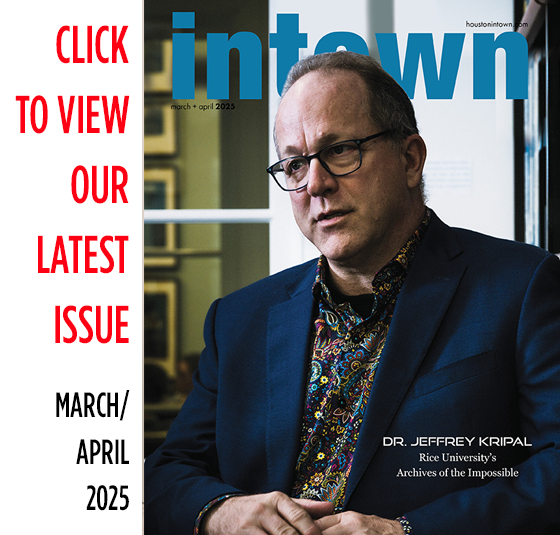
Understanding and Treating Autism
For Stacie Williamson, 52, a West University resident and president of Friends of Avondale House, life after son, Paul, 19, was born came at her like a boulder rolling down a mountaintop, delivering crushing blows. Until she and her husband, Tim, 62, found Avondale House, a non-profit established by a group of six parents in 1976 to serve their children with autism, the search for peace was one long stretch of lonesome highway. The Friends group, an Avondale auxiliary Stacie has led for the last three years, organizes fundraisers, celebrations for students and staff appreciation events.
Autism is a developmental disability characterized by lack of eye contact and speech, impaired socialization and often ritualized behavior. Affected children are said to be on the autism spectrum – a bell curves with high functioning on one end and extremely severe on the other. Avondale was the first and only community program in Houston to offer parents a break from the mental and physical intensity of caring for a child with autism.
Paul was born with brain damage from a virus called CMV. Often carried by toddlers, it appears to be a typical cold, which goes away without permanent impact. It is only dangerous when a pregnant mother like Stacie is exposed. Told to expect some delays in Paul’s development, the Williamsons enrolled their baby in physical and speech therapy beginning at six months.
Paul was late to walk and babble. At age two, the babbling faded, and he began to lose eye contact. Then started the trek from one medical appointment to another. Texas Children’s Hospital delivered the dreaded word, “autism,” and told the couple that CMV and autism were two separate issues.
Typically, children are diagnosed with autism between ages 2 to 4 years. “You immediately go into work mode to find every resource to help your child,” Stacie said. “I was trying to create a climate that was good for my girls and search for a place for Paul to get therapy.” The Williamson children also include Camille; 20 and Laurel, 17.
First stop was a program at Texas Children’s where therapists and parents modeled behavior hoping to have the child imitate. After a year, Paul made little progress. Next stop was Westview School. Its children were on the higher end of the autism spectrum and after a short period, a second blow: Paul did not fit in; his behaviors were too severe. “I was literally in a fetal position for several days after he got kicked out,” Stacie said. After that demoralizing hit – a third stop: Paul went to a Houston Independent School District elementary school program from 9 a.m. to noon, where he had speech therapy only once a week.
The fourth stop on the journey – the University of Houston’s Texas Young Autism Project established in 2001 by Dr. Gerald Harris, a UH psychologist, and professor. It offered ABA, Applied Behavior Analysis, a protocol developed in the 1980s. “We were very pleased with the results in behavior and potty training,” Stacie said. “Paul stayed there until he was eight and continued to see Dr. Harris until he was age 16.” The program also trained psychology students as therapists.
The UH project could enroll only a handful of children whose parents paid tuition of about $57,000 a year. The Texas Young Autism Project continues on a private basis, and ABA programs have emerged in Houston, including the one at Avondale House. ABA was developed in 1987 by Dr. Ivar Lovaas at the University of California at Los Angeles using behavioral techniques.
Ideally, ABA should begin as soon as a diagnosis is made. While some children recover all or most of their abilities, many do not. Paul is one who is struggling to do essential communications. Since Avondale, he has made the most progress ever in his life.
“I was Googling programs for autism and had never heard of Avondale,” Stacie said. “We toured and were impressed. We felt like the population was a lot like Paul. The people who work there almost have a calling.” Paul Kandola, the new school principal, echoed that sentiment. “I have a special passion for students with disabilities,” he said. “I like to be the voice of those who cannot speak for themselves.”
Paul Williamson will continue working on his communication board (he has no speech) so that his frustration from being unable to express his wants and needs will ameliorate outbursts and repetitive behavior. Now on the weekends when the family asks him what he wants to do, he points to “school” on the board. “Until we found Avondale, we did not look beyond a year,” Stacie said. “Now when we look at the day habilitation and residential programs (for adults) it gives us peace to know that he is going to have a place.”
Avondale House started with a facility on Avondale Street. Its first program provided only respite and some residential care for five children. Later, a small school program began in a carriage house on the property. Today the school teaches 76 students with autism from school districts as far away as Wharton and Galveston.
As the demand grew, Avondale moved for more than 20 years to Central Presbyterian Church. In 2008, the non-profit built a $4 million, 33,000 square foot facility near Stella Link. Steve Vetrano, CEO of Avondale, came to the job after 25 years at the American Red Cross. “What keeps me up at night,” he said, “is having to turn away families who require our specialized services.”
Friends of Avondale is currently holding a shoe drive for Funds2Org, an organization that teaches small business owners how to set up shop and sell goods. Drop off sites are at Avondale House; Episcopal High School; and St. John’s High School.
On April 8, 2019, Avondale House holds its annual fundraising luncheon at Bayou City Event Center featuring Ron Suskin, father of a son with autism and author of a book and Oscar-nominated documentary called Autism Animated. For more information or tickets call 713-993-9544 or email: sarahb@avondalehouse.org.
Carole Keeney Harrington is a Houston writer and filmmaker and was one of the founders of Avondale House.























